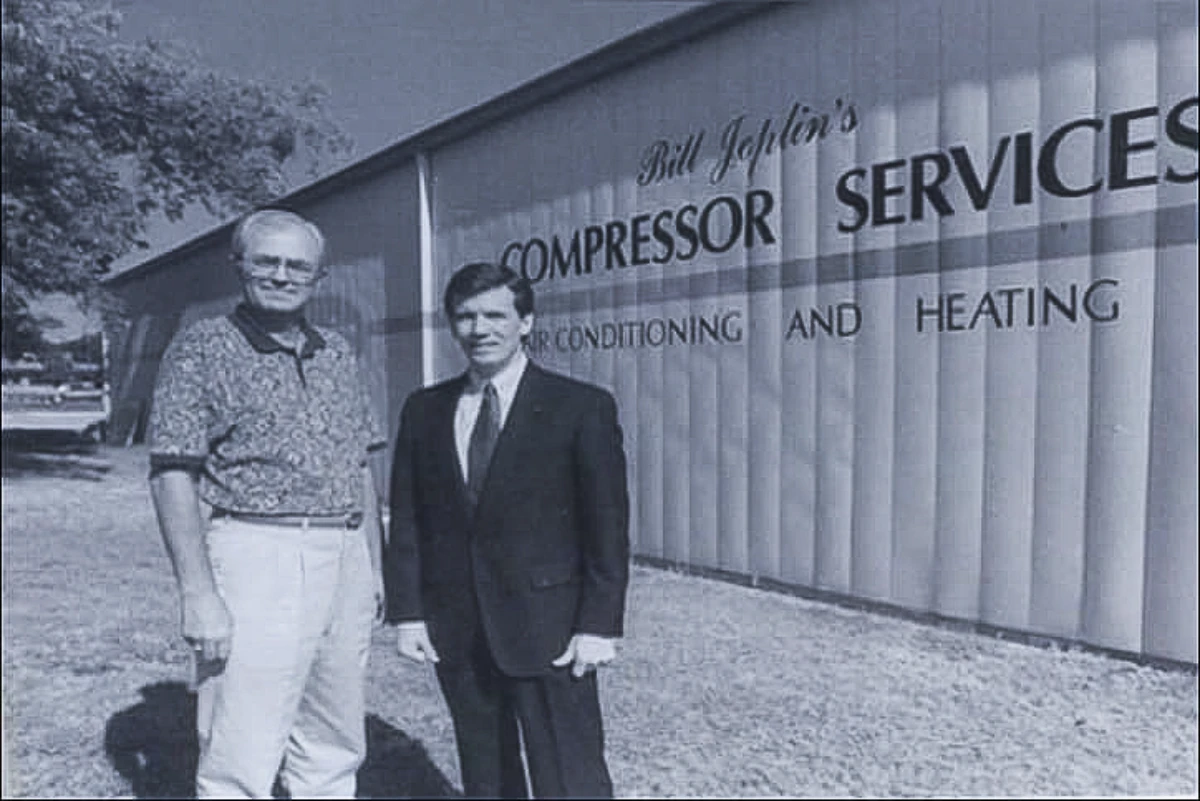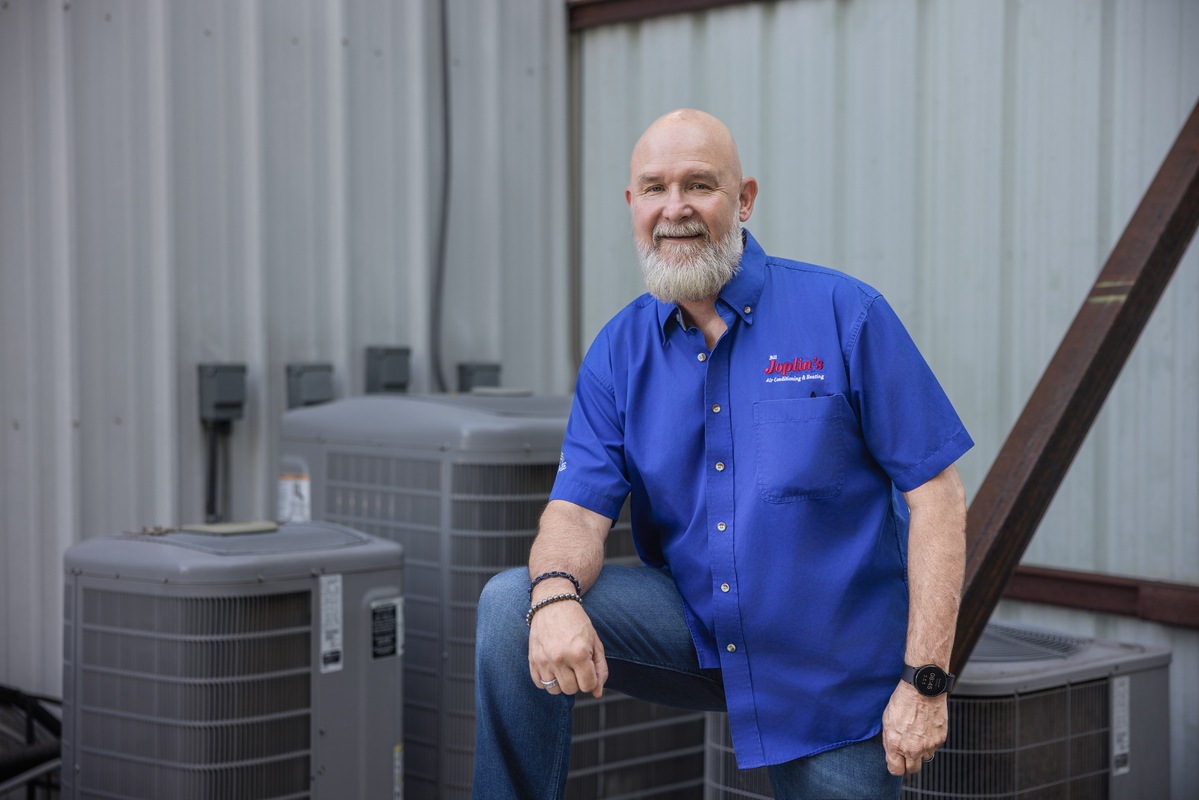Understanding Commercial HVAC Maintenance Requirements in Plano
Commercial HVAC systems in Plano face unique challenges due to North Texas weather patterns, including extreme summer heat that regularly exceeds 100 degrees Fahrenheit and occasional winter freezes. These temperature fluctuations place significant stress on heating and cooling equipment, making regular maintenance essential for optimal performance. Since 1978, we at Bill Joplin’s Air Conditioning & Heating have observed how proper maintenance protocols can extend equipment life by 40% or more while reducing energy consumption by up to 30%.
The complexity of commercial HVAC systems requires specialized knowledge that goes beyond residential service capabilities. Large rooftop units, chillers, boilers, and sophisticated control systems demand technicians with advanced training and experience. Commercial buildings in Plano typically operate their HVAC systems 10-14 hours daily, compared to residential systems that cycle on and off throughout the day. This continuous operation accelerates wear on components and increases the importance of preventive maintenance schedules.
Essential Components of Preventive Maintenance Programs
Comprehensive commercial HVAC maintenance involves systematic inspection and servicing of multiple system components. Air filters in commercial environments require monthly evaluation due to higher particulate loads from increased occupancy and activity levels. Dirty filters restrict airflow, forcing systems to work harder and consume more energy while providing inadequate temperature control. Filter replacement intervals vary based on facility type, with medical offices and restaurants requiring more frequent changes than standard office buildings.
Coil cleaning represents another critical maintenance task that directly impacts system efficiency and indoor air quality. Evaporator and condenser coils accumulate dirt, dust, and biological growth over time, creating insulation barriers that prevent proper heat transfer. Professional coil cleaning involves specialized chemicals and equipment to remove buildup without damaging delicate aluminum fins. Regular coil maintenance can improve cooling capacity by 20% and reduce compressor strain that leads to premature failure.
Belt inspection and adjustment prevent unexpected breakdowns that disrupt business operations. Commercial HVAC systems utilize multiple belt-driven components including supply fans, return fans, and exhaust fans. Proper belt tension ensures efficient power transmission while minimizing wear on bearings and pulleys. Misaligned or worn belts create vibration that damages other components and increases noise levels that disturb building occupants.
Seasonal Maintenance Protocols for North Texas Climate
Spring maintenance preparation focuses on cooling system readiness before Plano’s intense summer heat arrives. Refrigerant levels require verification and adjustment to manufacturer specifications, as even small leaks can reduce cooling capacity significantly. Electrical connections need thorough inspection and tightening to prevent resistance buildup that causes component failure during peak demand periods. Drain lines and condensate pans must be cleared of accumulated debris to prevent water damage and biological growth.
Fall maintenance shifts attention to heating system components in preparation for occasional cold snaps that characterize North Texas winters. Heat exchangers require detailed inspection for cracks or corrosion that could release dangerous carbon monoxide into occupied spaces. Gas connections and combustion efficiency testing ensure safe, economical operation throughout heating season. Thermostat calibration becomes particularly important as buildings transition between heating and cooling modes.
Energy Efficiency Optimization Through Regular Service
Commercial buildings in Plano spend approximately 40% of their utility budgets on HVAC operation, making efficiency improvements financially significant. Regular maintenance identifies opportunities for energy savings through simple adjustments like programming optimization and damper calibration. Building automation systems require periodic updates and fine-tuning to maintain peak efficiency as occupancy patterns and usage requirements evolve.
Duct system inspection reveals hidden energy losses that increase operating costs unnecessarily. Commercial ductwork develops leaks at connection points and through deteriorating insulation, forcing systems to condition excess air volume. Professional duct sealing and insulation repair can reduce energy consumption by 15-25% while improving comfort consistency throughout facilities. Variable frequency drives on fan motors provide additional savings by matching airflow to actual demand rather than operating at constant speed.
Compliance and Documentation Requirements
Commercial HVAC maintenance in Plano must comply with various regulatory requirements including EPA refrigerant handling protocols and local mechanical codes. Proper documentation protects businesses during inspections and provides valuable historical data for equipment lifecycle planning. Maintenance logs should record all service activities, component replacements, and performance measurements for future reference.
Indoor air quality regulations require specific maintenance procedures for commercial facilities, particularly healthcare and educational institutions. Regular testing and documentation of ventilation rates, humidity levels, and filtration efficiency demonstrate compliance with applicable standards. Equipment manufacturers often specify maintenance requirements for warranty validation, making adherence to recommended service intervals financially important.
Customized Maintenance Plans for Different Commercial Sectors
- Office Buildings: Focus on comfort consistency and energy efficiency during standard business hours with setback programming for nights and weekends
- Retail Spaces: Emphasize reliable operation during peak shopping periods with rapid response capabilities for equipment failures
- Restaurants: Require specialized attention to kitchen exhaust systems and makeup air balance with frequent filter changes
- Medical Facilities: Demand strict temperature and humidity control with enhanced filtration and air exchange requirements
- Industrial Operations: Need robust systems capable of handling process loads with preventive maintenance scheduled around production schedules
Technology Integration in Modern Maintenance Programs
Remote monitoring capabilities transform commercial HVAC maintenance from reactive to proactive service delivery. Internet-connected controls allow continuous system performance tracking with automatic alerts for developing problems. Predictive analytics identify components approaching failure before breakdowns occur, enabling scheduled replacement during convenient times rather than emergency situations.
Digital maintenance platforms streamline service delivery through mobile applications that provide technicians with complete equipment histories and technical specifications on-site. Electronic reporting delivers detailed service summaries immediately upon completion, including photographs and performance data. Integration with building management systems enables comprehensive facility optimization beyond basic HVAC functions.
Commercial HVAC maintenance represents a critical investment in business continuity and operational efficiency for Plano enterprises. Regular professional service prevents costly emergency repairs while optimizing energy consumption and maintaining comfortable environments for employees and customers. Bill Joplin’s Air Conditioning & Heating brings decades of experience serving North Texas businesses with comprehensive maintenance programs tailored to specific industry requirements and operational schedules.


